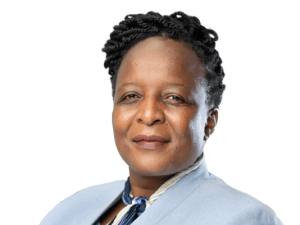

By Betty Murambadoro
Courtesy goes a long way, but doors are closed to he who is rude and oblivious”- Dr. Lucas D Shallua
WE call them “Brilliant Basics” and make them sound easy to do, yet the blind spots are plenty within us. There is one unsavoury moment I have found intriguing over the years in relationship management etiquette. Ineffective use of your host’s time when you show up without an appointment can be a blind spot moment for most of us.
Sometimes we take it for granted that the hosts have time to spare when we suddenly show up unannounced. I cherish the deep relationships which have earned me the confidence to just show up and be warmly received, without having secured an appointment in advance. It is a real privilege if the host stops whatever they are doing to pay attention to your unexpected arrival. It is an honour to be guarded jealously.
Even when you have earned the right to show up without an appointment, pulling a chair to sit without having been offered the seat can be unsavoury for some. Added to this, overstaying in the seat is even more unsavoury.

Betty Murambadoro is executive director, corporate & investment banking at Stanbic Bank Zimbabwe
Self-awareness in relationship management brings elegance. A smart person knows how to responsibly earn the attention and observe the triggers which signal when to say your goodbyes.
It is advisable common courtesy to ask the host “do you have five minutes” or “can I sit for five minutes” and still remember to stick to your five minutes, given that you just showed up uninvited. A classic one I occasionally use is “I am in the neighbourhood, can I pass through to say HELLO”. After earning the acceptance for a Hello-request, try not to overstay unless the host insists that you stay on for more conversations. Be careful not to unconsciously transition into manipulating your way into someone’s time. It can be viewed as abuse of relationship when you bulldoze your way into forcing attention on yourself.
Allow me to throw in a bit of controversy. We all have that someone in our lives who rocks up unannounced, with an expectation to be gracefully embraced when they suddenly arrive. Amazingly, some have mastered the art of causing you to not resist celebrating their unexpected arrival. What is the magic that makes them stand out that they can be welcomed even when they have showed up without an appointment? Let me hazard a guess on the ingredients enabling this: –
• They creatively test to see if the host can spare a brief moment. If the host is pressed for time they do not impose but rather politely ask when they can possibly return;
• If the host can spare a moment, they keep conversations brief and straight to the point;
• They express gratitude that they have been welcomed and acknowledge that they have showed up without an appointment;
• They find a way of making their presence valuable, diplomatically influencing their host to not get irritated with them for having showed up without an appointment;
• They make the ad hoc showing up pleasurable and worthwhile, by bringing a valuable insight that makes the host want to offer them more “airtime”;
• They leave before the host starts signalling discomfort with their continued presence, preferring the host to invite them to stay longer rather than overstaying without invitation.
My late sekuru (grandfather) from Hurungwe, a sophisticated and polished gentleman he was, in his late 80s was astute enough to verbally acknowledge that he had showed up without an appointment. So impressive was his self-awareness level, that he verbalised his awareness that as his muzukuru (grandchild) I was not expecting him and therefore understandably I was not ready for him. He would insist that I should not shift my schedule to suit him but that he would fit into my programme.
I am in stiches as I write this, remembering how sekuru said that whenever he showed up with no appointment, he would just watch the facial expressions of his host and be ready to say his goodbyes when he read a sudden change in the host’s demeanour. He learnt the art of telling when his presence was no longer welcome.
From my experience, the highest level on earning privileged access to any host of choice without a scheduled appointment is when you are told “Betty, you know I will always have time for you, please come through”.
How do I earn this level of privilege in all my relationships and know how not to abuse this privilege? I look forward to unpacking this plus other more unsavoury moments in future articles on relationship management. I am reflecting deeply and taking stock of the recent ad hoc showings I undertook.
Murambadoro is Executive Director, Corporate & Investment Banking at Stanbic Bank Zimbabwe